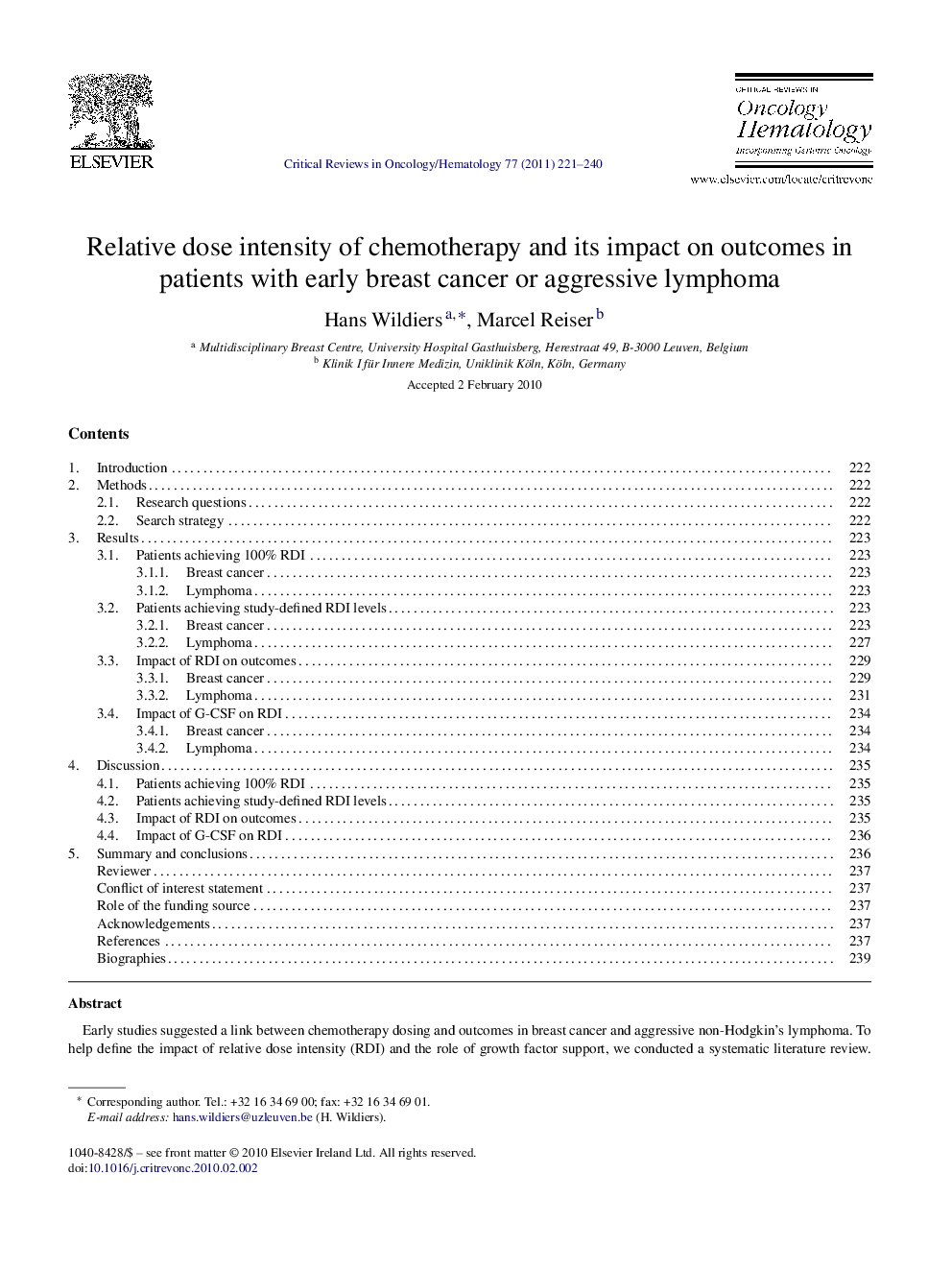| Article ID | Journal | Published Year | Pages | File Type |
|---|---|---|---|---|
| 3329308 | Critical Reviews in Oncology/Hematology | 2011 | 20 Pages |
Early studies suggested a link between chemotherapy dosing and outcomes in breast cancer and aggressive non-Hodgkin's lymphoma. To help define the impact of relative dose intensity (RDI) and the role of growth factor support, we conducted a systematic literature review. Many breast cancer patients do not achieve planned RDI. Older age, obesity and febrile neutropenia are associated with reduced RDI, which leads to worse survival in several studies, particularly those including anthracyclines. G-CSF prophylaxis improved RDI in most, but not all, studies. There may be a threshold above which increasing RDI does not further improve outcomes (∼85% for CMF and anthracycline-based regimens). For lymphoma, there is strong evidence that patients benefit from full-dose chemotherapy, with RDI reductions associated with reduced survival. The definition of “full dose” is, however, unclear. Older age and higher disease stage may be associated with reduced RDI, and G-CSF improved the chances of higher RDI in most studies.
